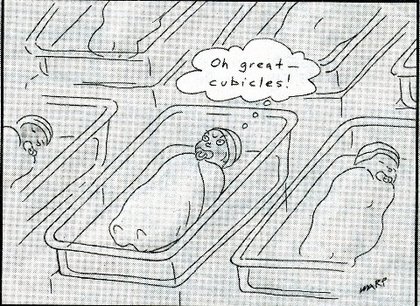
PLEASE READ Mark Twain, The Adventures of Huckleberry Finn, 1884, over the summer! See the Book List page for the correct edition to buy.
FIRST CLASS MEETING: Tuesday, Sept. 29, noon, Sem 2, D1105.
Childhood is not just a biological fact of life. Philippe Aries famously argued that children and childhood did not exist before the modern era. How do ideas about children, the conditions of child rearing and of childhood, and conventions of education, change over time? And if the meanings of “children” and “childhood” change throughout history, and across cultures, are there always better-than-conventional ways to think about our question, “What are children for?”
Until roughly 200 years ago, most children were necessary: They contributed labor to the maintenance of the family home, cared for youngers and elders, dressed in the fashion of adults, and were expected to reproduce the circumstances of their births. The social revolutions of the 18th century disrupted virtually all social hierarchies, including those within families. Inspired by Locke and Rousseau, educated people began to view childhood as a unique stage of life. Eventually, children no longer participated directly in the adult world. Children became children, and these new economically “worthless” but sentimentally “priceless” beings were supervised by paid workers and furnished with consumer goods to entertain and enrich them. Children morphed from contributors to the maintenance of the home into consumers of goods that were said to be necessary for their optimal development. Childhood became, for many moderns, the most “authentic” time of life, and people worked to recapture it in order to live more “fulfilling” lives. In our own time, it is not at all clear just what children are for, unless they are screens for the projected desires of adults whose own purposes are unclear.
In the fall quarter, we will learn about the ways children in North America lived and were viewed by adults from the 16th century forward, and we will examine how the meaning of childhood was transformed during the flowering of the Enlightenment. We will study the changing meanings of innocence and sin, labor and leisure, usefulness/value and sacredness, and how those meanings figured in the way children were seen and treated. Guest speakers will be people who have a special interest in children.
In the winter, the program will focus on the history and philosophy of education. Some say the American system of public schooling was invented in the 19th century to democratize and homogenize a diverse population. Others argue that schools were designed to separate children from their families and to “school to order” an unpredictable and unruly portion of the population. Guest speakers will include professionals and concerned citizens in all phases of education.
The class befits students who work with or care about children. It will also enlighten anyone who has grown up, is still trying to grow up, or wonders if she or he has, or should ever, grow up. Students should plan to stay in the program for fall and winter. The program will involve significant independent study and group work.